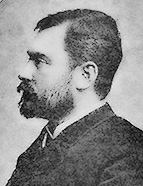

The many re-editions of Martins’s works, not only in Portuguese but also in Spanish and occasionally in English, demonstrate the enduring interest in his writings. His interpretation of national history left a profound impact on historians, essayists, novelists, and poets, both his contemporaries and those who followed (Eça de Queiroz, Guerra Junqueiro, Fernando Pessoa, Ruy Belo, António Sérgio, Jaime Cortesão, A. José Saraiva, Óscar Lopes, Eduardo Lourenço, among many others), continuing to the present day—not to mention filmmakers such as Manoel de Oliveira.
However, in an era that embraced a “positive” conception of history as science—rooted in documents and exemplified by the Revue Historique since 1876—Martins’s historiography faced scepticism. Yet Eça de Queiroz praised Martins’s skills as an artist, highlighting his realistic grasp of connective movements (a process Eça compared to Zola’s approach). Eça also commended the historical biographies Martins was writing, calling them “the greatest service rendered to Portugal in this century,” as they revived patriotism and redefined Portuguese identity. In these late-life biographies, Martins demonstrated a commitment to rigorous research and the use of sources to underpin his work, alongside undeniable literary and essayistic qualities. However, this aspect of his work was rarely acknowledged, with Vitorino Magalhães Godinho being one of the few exceptions. Throughout the 20th century and even today, interpretations of Martins’s historiographical contributions remain divided. Some, like Magalhães Godinho, appreciate his pivotal role in understanding and reflecting on the Portuguese historical experience. Others, like Oliveira Marques, criticise his lack of grounding in primary sources, objectivity, and balance, even denying him the status of historian. Marques went so far as to claim that Martins lacked “authentic knowledge of the past, direct contact with sources, prudence, objectivity, and balance, in short” ( Antologia da historiografia portuguesa [Anthology of Portuguese Historiography], vol. I, 1974, p. 40). Such a judgement, however, cannot be applied universally to his entire oeuvre. Admittedly, his portrayal of King D. Duarte is partly unsubstantiated, particularly regarding his supposed political ineffectiveness and indecision (Luís M. Duarte, D. Duarte , 2005, p. 21). Similarly, the physical, ethical, and political characterisation of Infante D. Pedro owes much to Antero de Quental, as Sousa Holstein observed in 1923 and Carolina Rufino reaffirmed in O processo historiográfico de Oliveira Martins… [The h istoriographical p rocess of Oliveira Martins], 2017, and even to Martins himself, who identified with him. On the other hand, Martins’s depiction of D. João VI in História de Portugal , which at first appears to be a grotesque caricature, and his compelling narrative of the royal family’s flight to Brazil, are largely based on contemporary sources and earlier historians such as Herculano and Luz Soriano. Similarly, contrary to Silva Cordeiro’s assumption, the influential História da República Romana [History of the Roman Republic] (1885) was not simply a retelling of Mommsen’s History of Rome . It also drew on various ancient sources, including Valerius Maximus, Suetonius, and Cicero, as well as literary texts, though sometimes with distortions (André Teixeira, As “fontes inexauríveis…” [The “ i nexhaustible s ources…”], 2021).
This work is financed by national funds through FCT - Foundation for Science and Technology, I.P, in the scope of the projects UIDB/04311/2020 and UIDP/04311/2020.
